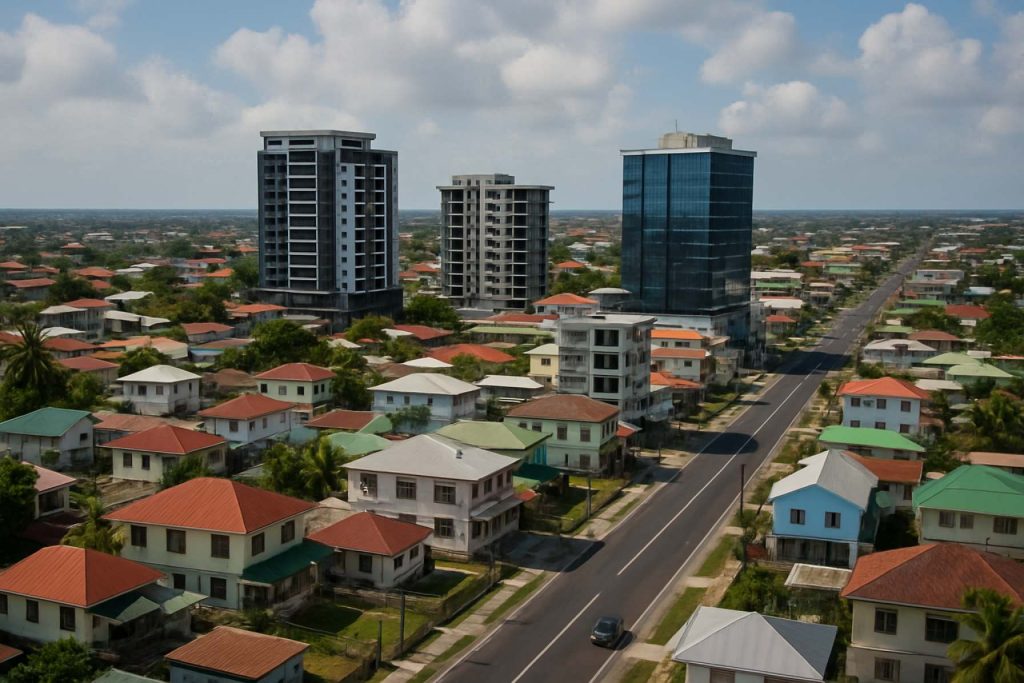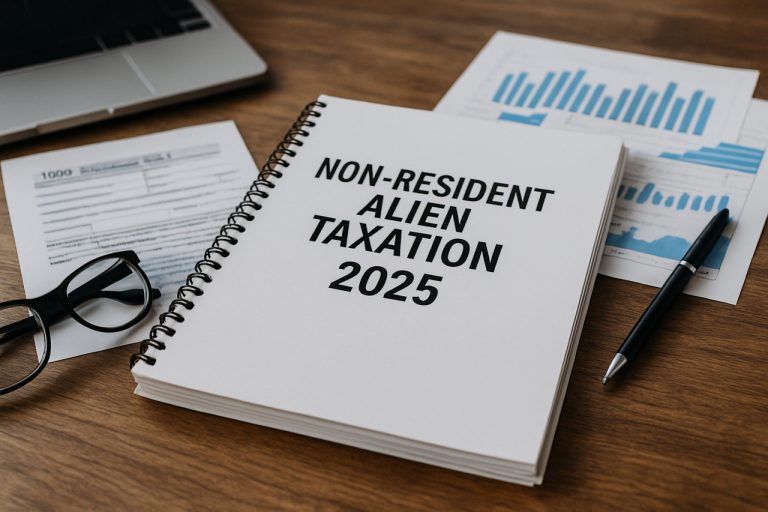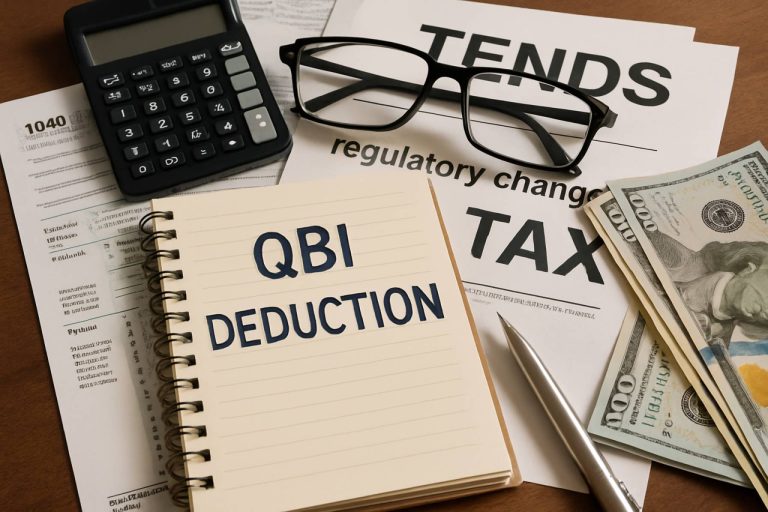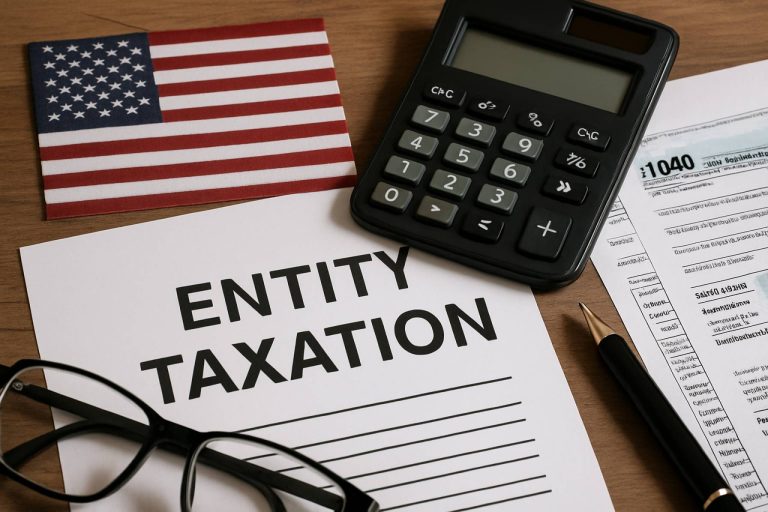
Table of Contents
- Executive Summary: The State of Guyana’s Real Estate Market in 2025
- Economic Drivers: Oil Boom, Infrastructure, and Urbanization
- Key Market Statistics: Prices, Volume, and Demand Trends
- Legal and Regulatory Framework: Ownership, Land Titles, and Recent Reforms
- Taxation and Compliance: What Buyers and Investors Must Know
- Residential vs. Commercial: Sector-by-Sector Deep Dive
- Foreign Investment: Policies, Restrictions, and Opportunities
- Risks, Challenges, and Market Entry Barriers
- Future Outlook: Projections for 2025–2030
- Key Resources: Government Portals, Professional Associations, and Official Guidance
- Sources & References
Executive Summary: The State of Guyana’s Real Estate Market in 2025
The real estate sector in Guyana is undergoing a period of rapid transformation, driven by unprecedented economic growth largely fueled by the nation’s burgeoning oil and gas industry. As of 2025, this growth has significantly impacted both the commercial and residential property markets, with increased demand for housing, office space, and infrastructure development. According to the most recent data, Guyana’s GDP has experienced double-digit growth rates annually since 2019, positioning the country as one of the fastest-growing economies in the Western Hemisphere Bureau of Statistics, Guyana.
Key events shaping the real estate market include large-scale investments by international and regional developers and the launch of government-backed housing initiatives. In 2024, the Government of Guyana expanded its “Dream Realized” housing program, aiming to distribute over 50,000 house lots by 2025 to address the growing demand for affordable housing Ministry of Housing and Water. Concurrently, infrastructure upgrades such as new roads, bridges, and utility expansions have opened additional land for development and increased property values in both urban and peri-urban areas.
The legal and regulatory framework governing real estate has also evolved. The Land Registry and Deeds Registry Amendment Act 2022 streamlined property registration and transfer processes, reducing transaction times and improving the security of land tenure Parliament of Guyana. Compliance requirements are now more stringent, particularly in relation to anti-money laundering (AML) and know-your-customer (KYC) obligations, as supervised by the Financial Intelligence Unit of Guyana. Real estate agents and developers are mandated to implement thorough client due diligence in line with the updated AML/CFT regulations Financial Intelligence Unit Guyana.
Statistically, property prices in Georgetown and other growth centers have seen annual increases exceeding 15% since 2022, with rental yields for prime commercial properties reaching record highs. The residential sector is witnessing strong demand, especially for middle-income and luxury segments, though there remains a persistent need for affordable housing solutions Bureau of Statistics, Guyana.
Looking ahead, the outlook for Guyana’s real estate market remains robust. Continued economic expansion, demographic shifts, and sustained foreign direct investment are expected to drive further growth. However, challenges such as infrastructure bottlenecks, regulatory compliance costs, and the need for transparent land administration will require ongoing attention from policymakers and industry stakeholders.
Economic Drivers: Oil Boom, Infrastructure, and Urbanization
The Guyanese real estate sector is undergoing rapid transformation, propelled primarily by the nation’s prolific oil discoveries and subsequent economic expansion. Since the commencement of offshore oil production in 2019, Guyana has experienced sustained GDP growth, with projections indicating continued double-digit increases through 2025 and beyond. This explosive growth has directly influenced demand for residential, commercial, and industrial real estate, particularly in urban centers such as Georgetown and the new oil hub regions.
A key economic driver has been foreign direct investment (FDI), which reached record highs in recent years. Multinational energy companies, service providers, and related businesses have sought office space, logistics facilities, and executive housing, significantly impacting property values. According to the Ministry of Finance, real estate and construction now account for a growing share of national GDP, with construction sector growth at 26.5% in 2023 and further expansion anticipated in 2025 as infrastructural projects continue.
Infrastructure development is another pivotal factor. Major initiatives, such as the new Demerara River bridge, the expansion of the Cheddi Jagan International Airport, and the Sheriff-Mandela Road Project, have improved connectivity and unlocked new development corridors. The government’s housing drive—targeting the allocation of 50,000 house lots by 2025—has led to significant suburban and peri-urban expansion, with associated increases in land prices and housing construction activity. The Central Housing and Planning Authority oversees zoning, planning, and compliance, ensuring that urbanization aligns with national development plans.
Legal compliance remains critical in this dynamic environment. The Guyana Lands and Surveys Commission governs land titling and transfers, and all real estate transactions must adhere to protocols set by the Deeds Registry Act and Land Registry Act. The government is also updating property valuation methods and strengthening anti-money laundering measures as part of its Financial Action Task Force (FATF) commitments, adding further regulatory oversight to real estate transactions.
Looking ahead, as oil revenues continue to flow and efforts to diversify the economy intensify, the outlook for Guyana’s real estate sector remains robust. Risks include potential overheating, infrastructure bottlenecks, and the need for enhanced regulatory enforcement. Nevertheless, with ongoing infrastructure investments and urbanization, real estate is poised to remain a key beneficiary of Guyana’s economic boom into 2025 and the following years, subject to continued legal and compliance vigilance.
Key Market Statistics: Prices, Volume, and Demand Trends
The Guyanese real estate sector is undergoing significant transformation, driven primarily by the country’s burgeoning oil and gas industry. This expansion has resulted in increased demand for both residential and commercial properties, particularly in the capital, Georgetown, and surrounding regions. In 2025, average residential property prices in prime areas of Georgetown are estimated to range from GYD 25 million to GYD 60 million for detached homes, with apartments and condominiums commanding GYD 10 million to GYD 30 million, depending on size and amenities. Commercial property prices and rental rates have seen higher volatility, with Grade A office space in central locations averaging GYD 1,000–1,500 per square foot per month, reflecting rising interest from multinational firms and local enterprises expanding their operations.
Transaction volumes have increased steadily over the past three years, with the Guyana Lands and Surveys Commission reporting a 15% year-over-year rise in registered property transfers for 2024, and projections indicating another 10–12% increase in 2025. Demand is especially strong for mid- to high-end residential units, new mixed-use developments, and warehousing in proximity to key logistics corridors. This trend is supported by population growth in urban areas, rapid infrastructure development, and continued inflows of expatriate workers.
Supply, however, remains constrained by slow permitting processes and limited availability of serviced land, particularly in high-demand districts. The Guyana Revenue Authority has also observed a notable uptick in property tax filings, correlating with increased real estate investment activity. Vacancy rates in both residential and commercial sectors remain below 7%, underscoring the pressure on existing stock and supporting elevated price levels.
Looking forward to 2025 and beyond, the market outlook is positive but closely tied to the pace of energy-sector expansion and broader macroeconomic stability. Major infrastructure projects, such as housing schemes overseen by the Central Housing & Planning Authority, are expected to add significant new inventory over the next two to three years. Nonetheless, sustained demand from both domestic and international investors is likely to maintain upward pressure on prices, especially in prime urban locations. Authorities are also monitoring compliance with evolving land registration and anti-money laundering regulations, which could impact transaction volumes and market transparency as enforcement intensifies.
Legal and Regulatory Framework: Ownership, Land Titles, and Recent Reforms
Guyana’s real estate sector in 2025 is shaped by a complex legal and regulatory framework that governs land ownership, titling, and compliance requirements. The foundation of property rights in Guyana rests on a dual system of land registration: the “Transport” system, dating back to Roman-Dutch law, and the “Certificate of Title” system, introduced by the Land Registry Act (Cap. 5:02) for more streamlined transactions. The Government has undertaken reforms to modernize and digitize these processes, aiming to enhance transparency and reduce delays in property transfers.
The Guyana Lands and Surveys Commission (GLSC) is the principal authority managing state lands, processing lease applications, and resolving disputes pertaining to land demarcation. For private land, the Deeds Registry and Land Registry are responsible for recording and authenticating property ownership. The Land Court addresses disputes and adjudicates on matters related to land titles and boundaries.
Foreign ownership is permitted, but acquisitions by non-citizens may require approval from the President under the Land Holding Companies (Control) Act (Cap. 89:01). Compliance with anti-money laundering protocols—led by the Financial Intelligence Unit—has been strengthened in recent years, with mandatory reporting for real estate transactions above specified thresholds and enhanced due diligence for politically exposed persons.
Recent reforms include the digitization of land records to shorten processing times for transfers and improve access to title information. The GLSC’s e-Services portal, launched in 2023, is expected to achieve full operational capacity by 2025, enabling online searches, submissions, and status tracking for land transactions. These initiatives are part of the government’s broader thrust to modernize the legal infrastructure in anticipation of increased real estate activity driven by the oil and gas boom.
- Statistically, the Bureau of Statistics has reported a 30% increase in property transactions from 2022 to 2024, with a significant uptick in commercial and residential developments in coastal regions.
- Compliance risks remain, especially concerning the regularization of informal settlements and historical land claims. Legislative amendments are under review to clarify adverse possession rules and strengthen the legal status of communal lands, particularly those belonging to Indigenous communities (Ministry of Amerindian Affairs).
Looking ahead, the legal framework is expected to continue evolving to accommodate rapid economic growth, with further reforms targeting land tenure security, dispute resolution efficiency, and anti-corruption safeguards. Stakeholders should closely monitor regulatory updates and ensure strict adherence to due diligence protocols when engaging in Guyanese real estate transactions.
Taxation and Compliance: What Buyers and Investors Must Know
Guyana’s real estate market continues to attract both domestic and foreign investors, driven by robust economic growth and significant infrastructure projects. However, navigating the regulatory landscape—especially regarding taxation and compliance—is critical for buyers and investors in 2025 and the years ahead.
Taxation Framework
Property transactions in Guyana are subject to several statutory taxes and fees. The key taxes include:
- Stamp Duty: Payable on the transfer of property, typically at a rate of 2% for the buyer and 2% for the seller, based on the market value or consideration, whichever is higher.
- Capital Gains Tax: If a property is sold within 25 years of acquisition, the seller is liable for capital gains tax at a rate of 20% on the net gain. Exemptions may apply under certain conditions.
- Property Tax: Annual property tax is assessed on the declared value of land and buildings owned as of December 31 each year, with rates varying but typically around 0.5% to 0.75% for individuals and up to 0.75% for companies.
More details and procedural requirements are outlined by the Guyana Revenue Authority.
Legal Compliance and Due Diligence
Foreign investors are permitted to own real estate in Guyana, but all buyers must comply with statutory requirements for property registration and conveyancing. The Guyana Lands and Surveys Commission oversees land registration, and all transactions must be executed before a notary public and registered at the Deeds Registry.
- Title searches are mandatory to confirm ownership and identify encumbrances.
- Anti-money laundering procedures require buyers and sellers to provide proof of identity and source of funds.
- Foreign investors may face additional screening under the Anti-Money Laundering and Countering the Financing of Terrorism Act, as administered by the Financial Intelligence Unit.
Recent Developments and Outlook
The government has committed to ongoing reforms, including digitalization of land records and streamlined tax administration, aiming to improve transparency and efficiency (Ministry of Finance). These efforts, combined with expected economic expansion from the energy sector, are likely to drive further demand in the real estate market.
Looking ahead, compliance with evolving tax laws and regulatory requirements will remain central for market participants. Prospective buyers and investors are strongly advised to engage licensed legal and financial professionals familiar with local statutes and procedures to mitigate risks and ensure full compliance.
Residential vs. Commercial: Sector-by-Sector Deep Dive
Guyana’s real estate landscape in 2025 presents distinct dynamics between the residential and commercial sectors, shaped by ongoing economic expansion, infrastructural development, and legislative reforms. The residential sector has witnessed heightened demand, fueled by rapid urbanization, population growth, and the influx of expatriates connected to Guyana’s burgeoning oil industry. According to recent data from the Bureau of Statistics Guyana, urban centers such as Georgetown and Linden have experienced significant increases in both property values and rental rates, as housing demand outpaces new supply.
Legally, residential real estate transactions are governed by the Deeds Registry Act and the Land Registry Act, which outline conveyancing procedures, title registration, and ownership transfer protocols. In 2023, the Ministry of Legal Affairs introduced streamlined digital processes for property title registration, aiming to reduce processing times and improve transparency. Compliance with zoning regulations—overseen by the Central Housing & Planning Authority—remains critical for new housing developments, with stricter enforcement observed since 2024 to ensure orderly urban growth.
In contrast, the commercial real estate sector is experiencing a transformation driven by foreign direct investment in oil, gas, logistics, and hospitality. New office buildings, hotels, and retail centers are proliferating, particularly around the capital and the emerging Ogle International Airport corridor. The Guyana Office for Investment reports a doubling of registered commercial property projects between 2022 and 2024, reflecting robust investor confidence. However, this sector faces unique compliance obligations, particularly with respect to anti-money laundering (AML) and foreign ownership rules. The Financial Intelligence Unit (Guyana) enforces due diligence requirements for commercial real estate transactions, in line with the Anti-Money Laundering and Countering the Financing of Terrorism Act.
Key statistics highlight the divergence between sectors: residential property prices rose by an estimated 12% in 2024, while commercial lease rates in prime locations increased by 18% over the same period (Bureau of Statistics Guyana). Looking ahead, ongoing infrastructure projects—such as the New Demerara River Bridge and expanded road networks—are expected to further boost both sectors, with the commercial segment likely to outpace residential growth as Guyana cements its role as a regional business hub. Nevertheless, both sectors must navigate evolving regulatory frameworks and increased scrutiny on compliance in the years ahead.
Foreign Investment: Policies, Restrictions, and Opportunities
In 2025, Guyana’s real estate sector continues to attract significant attention from foreign investors, propelled by the country’s burgeoning oil economy and ongoing infrastructural development. The government maintains an open investment regime, generally allowing foreign nationals and entities to purchase, lease, and develop real estate without major restrictions. Foreigners are permitted to own both residential and commercial property, and there are no limitations on repatriation of profits or capital, provided compliance with local tax and regulatory requirements is observed (Government of Guyana).
The principal legal framework governing real estate transactions by foreigners is the Deeds Registry Act and the Land Registry Act. These laws outline the procedures for registering property and ensuring clear land title. Foreign investors must conduct due diligence to verify title authenticity and compliance with zoning, planning, and environmental regulations. The Guyana Office for Investment (GO-Invest) serves as the primary facilitator for foreign investors, providing guidance on regulatory compliance, incentives, and investment procedures (Guyana Office for Investment).
Recent years have seen the government emphasize transparency and modernization of land administration. Initiatives include digitization of property records and streamlining of approval processes—a move aimed at reducing fraudulent transactions and making the investment climate more predictable. However, challenges remain, such as occasional disputes over land rights and bureaucratic delays in processing titles, which foreign investors should factor into their timelines (Guyana Lands & Surveys Commission).
- Foreign investment in real estate is not subject to approval thresholds, but projects involving large-scale land or sensitive areas (e.g., near borders, indigenous lands) may require additional scrutiny and government consent.
- Compliance with anti-money laundering regulations is strictly enforced, with the Financial Intelligence Unit overseeing real estate transactions to prevent illicit capital flows.
- There are no restrictions on lending to foreigners, and non-residents may access financing through local or international banks, subject to standard credit assessments.
Key statistics indicate that foreign direct investment (FDI) inflows into Guyanese real estate have risen markedly since 2020, with continued growth projected through 2025, driven by demand for office space, hotels, and residential developments for expatriate workers (Bank of Guyana). Looking ahead, the outlook remains positive, as ongoing oil production, infrastructure upgrades, and urban expansion are expected to sustain real estate opportunities for foreign investors, provided they maintain rigorous compliance with local laws and evolving regulatory standards.
Risks, Challenges, and Market Entry Barriers
The real estate sector in Guyana presents a dynamic yet complex landscape in 2025, characterized by both significant opportunities and notable risks and challenges. Key risks include regulatory uncertainties, land titling issues, infrastructural deficits, and evolving compliance requirements. These factors collectively pose market entry barriers for both local and foreign investors.
- Regulatory and Legal Risks: Guyana’s land administration system is bifurcated between state and private land, governed by the Ministry of Natural Resources and Ministry of Local Government and Regional Development. There remain persistent challenges regarding land titling and ownership verification, which can lead to protracted legal disputes. The government has made efforts to digitize records and streamline processes, but gaps remain, particularly in hinterland regions.
- Compliance and Due Diligence: The Financial Intelligence Unit (FIU) of Guyana enforces anti-money laundering (AML) regulations, particularly relevant in real estate transactions due to heightened scrutiny by the Caribbean Financial Action Task Force (CFATF). Real estate agents and attorneys must comply with “Know Your Customer” (KYC) and AML guidelines, increasing compliance costs and necessitating robust internal controls for market entrants.
- Infrastructure and Market Transparency: While the government has directed public investment toward roads, utilities, and housing, infrastructure outside of urban centers like Georgetown can be unreliable, impacting the viability of certain projects. Market transparency is still developing, with limited centralized data on transactions and valuations overseen by the Guyana Revenue Authority.
- Foreign Investment and Taxation: Foreign investors face restrictions on land ownership, particularly agricultural land, which is governed by the Guyana Lands and Surveys Commission. Additionally, property transfer taxes and stamp duties—regulated by the Guyana Revenue Authority—add to entry costs.
- Outlook and Emerging Barriers: Looking ahead to 2026 and beyond, continued oil-driven economic growth is expected to fuel real estate demand, but rapid expansion also raises risks of market overheating and speculative bubbles. The government is working on further reforms to the land titling process and incentives for affordable housing, but bureaucratic inertia and capacity constraints could slow progress (Ministry of Housing & Water).
In summary, while Guyana’s real estate market offers significant potential, investors must navigate intricate legal, infrastructural, and compliance landscapes. Meticulous due diligence, strong local partnerships, and ongoing monitoring of regulatory changes will be critical for market entry and sustainable operations.
Future Outlook: Projections for 2025–2030
The real estate sector in Guyana is poised for significant transformation between 2025 and 2030, driven by the country’s rapidly expanding oil and gas industry, ongoing infrastructure development, and regulatory reforms. With Guyana’s GDP growth projected to remain among the highest globally, demand for residential, commercial, and industrial properties is expected to accelerate, particularly in urban centers such as Georgetown and emerging hubs along the coastal corridor.
Key legislative and compliance frameworks will shape this trajectory. The Ministry of Legal Affairs continues to oversee the modernization of property registration and conveyancing systems, aiming to streamline transactions and enhance transparency. The Guyana Board of Real Estate Services (GBRES), established under the Real Estate Agents and Brokers Act 2020, is anticipated to fully implement licensing and regulatory oversight by 2025, raising professional standards and protecting consumers from fraudulent practices.
Foreign direct investment (FDI) is projected to remain robust, as policy incentives—such as those administered by the Guyana Office for Investment—facilitate large-scale development projects. These include mixed-use complexes, hospitality ventures, and expanded housing schemes. Government housing initiatives, led by the Central Housing & Planning Authority, are targeting the construction of tens of thousands of affordable homes between 2025 and 2030, addressing supply gaps for a growing urban population.
Statistical data from the Bureau of Statistics indicates that housing starts and property transactions increased by over 20% in the past three years, a trend expected to continue with sustained economic growth. However, regulatory compliance will be critical, as the GBRES intensifies anti-money laundering (AML) enforcement and Know Your Customer (KYC) requirements, in alignment with recommendations from the Financial Intelligence Unit.
- Urbanization and population growth will spur demand for high-density and mixed-use developments.
- Continued FDI and public-private partnerships will drive large-scale commercial and industrial real estate investments.
- Regulatory reforms and digitalization of land registries are expected to reduce transaction times and enhance legal certainty.
- Compliance with AML and property tax regulations will be a focus area for both local and international investors.
Overall, Guyana’s real estate market outlook for 2025–2030 is one of cautious optimism, anchored by regulatory improvements, sustained economic expansion, and a government commitment to housing and urban development. Stakeholders should closely monitor evolving compliance obligations and infrastructural trends to capitalize on emerging opportunities.
Key Resources: Government Portals, Professional Associations, and Official Guidance
The effective navigation and compliance within Guyana’s real estate sector rely heavily on access to authoritative resources and guidance. As the market continues to expand—spurred by economic growth and infrastructural investments—stakeholders require up-to-date information on regulations, procedures, and sectoral developments. Below is an overview of essential government portals, professional associations, and official guidance resources relevant for real estate in Guyana for 2025 and beyond.
- Deeds and Commercial Registries Authority (DCRA): The DCRA is the principal body overseeing land title registration, transfers, conveyancing, and commercial registries. It offers comprehensive resources, including procedural guides, downloadable forms, and updates on legislative changes impacting property transactions. The DCRA’s portal is indispensable for verifying property ownership, understanding the conveyancing process, and ensuring due diligence in compliance with the Deeds Registry Act and associated regulations (Deeds and Commercial Registries Authority).
- Guyana Lands and Surveys Commission (GLSC): For land administration and cadastral information, the GLSC provides authoritative maps, land use policies, and guidance on state land leases. Their portal supports applications for land leases, information on zoning, and general land management, all of which are crucial for real estate developers and investors (Guyana Lands and Surveys Commission).
- Guyana Revenue Authority (GRA): The GRA is responsible for the taxation aspects of real estate transactions, including stamp duties, capital gains tax, and property taxes. Their official website provides updated tax rates, filing requirements, and compliance checklists necessary for both individuals and corporate entities involved in property dealings (Guyana Revenue Authority).
- Ministry of Housing and Water: This ministry drives national housing policies, low-income housing schemes, and infrastructural projects. Its portal features project updates, application procedures for government housing, and official policy documents, which are critical for understanding the direction of residential market development (Ministry of Housing and Water).
- Guyana Association of Real Estate Professionals (GAREP): As the leading professional body, GAREP sets ethical standards, offers training, and provides networking opportunities for real estate agents and brokers. Membership resources include best practice guidelines, market updates, and advocacy on regulatory matters (Guyana Association of Real Estate Professionals).
These official resources are essential for ensuring legal compliance, transparency, and informed decision-making in Guyana’s evolving real estate landscape through 2025 and the coming years.
Sources & References
- Ministry of Housing and Water
- Parliament of Guyana
- Financial Intelligence Unit Guyana
- Ministry of Finance
- Central Housing and Planning Authority
- Guyana Revenue Authority
- Land Court
- Ministry of Legal Affairs
- Bank of Guyana
- Ministry of Local Government and Regional Development
- Deeds Registry Act
- Guyana Lands and Surveys Commission



